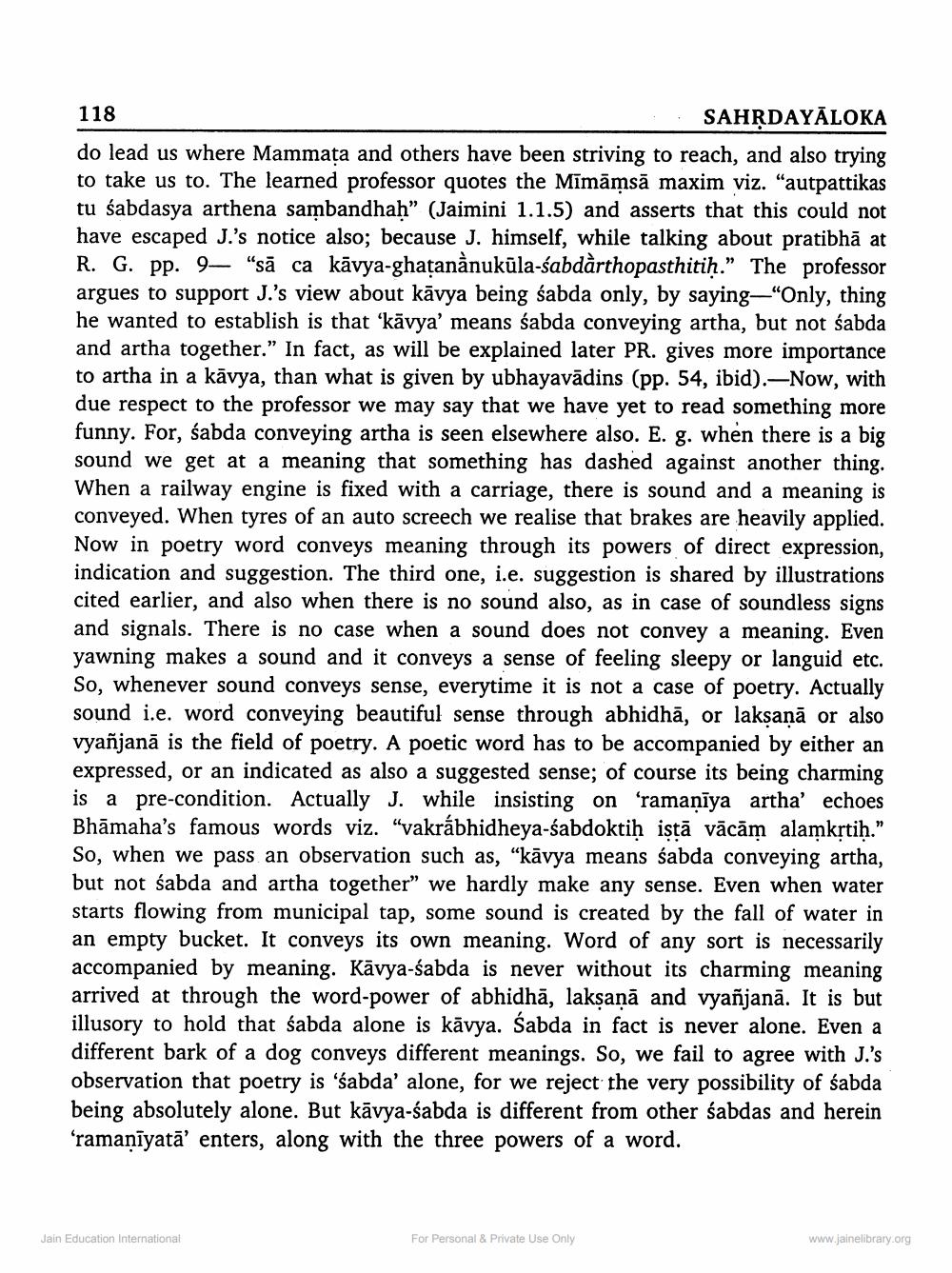________________
118
SAHRDAYĀLOKA
do lead us where Mammaţa and others have been striving to reach, and also trying to take us to. The learned professor quotes the Mīmāmsä maxim viz. “autpattikas tu sabdasya arthena sambandhah" (Jaimini 1.1.5) and asserts that this could not have escaped J.'s notice also; because J. himself, while talking about pratibhā at R. G. pp. 9— "sä сa kāvya-ghatanànukūla-śabdàrthopasthitih.” The professor argues to support J.'s view about kāvya being sabda only, by saying—“Only, thing he wanted to establish is that ‘kāvya' means sabda conveying artha, but not sabda and artha together.” In fact, as will be explained later PR. gives more importance to artha in a kāvya, than what is given by ubhayavādins (pp. 54, ibid).—Now, with due respect to the professor we may say that we have yet to read something more funny. For, śabda conveying artha is seen elsewhere also. E. g. when there is a big sound we get at a meaning that something has dashed against another thing. When a railway engine is fixed with a carriage, there is sound and a meaning is conveyed. When tyres of an auto screech we realise that brakes are heavily applied. Now in poetry word conveys meaning through its powers of direct expression, indication and suggestion. The third one, i.e. suggestion is shared by illustrations cited earlier, and also when there is no sound also, as in case of soundless signs and signals. There is no case when a sound does not convey a meaning. yawning makes a sound and it conveys a sense of feeling sleepy or languid etc. So, whenever sound conveys sense, everytime it is not a case of poetry. Actually sound i.e. word conveying beautiful sense through abhidhā, or laksaņā or also vyañjanā is the field of poetry. A poetic word has to be accompanied by either an expressed, or an indicated as also a suggested sense; of course its being charming S a pre-condition. Actually J. while insisting on 'ramanīya artha' echoes Bhāmaha's famous words viz. "vakrábhidheya-sabdoktih istā vācām alamkrtih." So, when we pass an observation such as, "kāvya means sabda conveying artha, but not śabda and artha together” we hardly make any sense. Even when water starts flowing from municipal tap, some sound is created by the fall of water in an empty bucket. It conveys its own meaning. Word of any sort is necessarily accompanied by meaning. Kāvya-sabda is never without its charming meaning arrived at through the word-power of abhidhā, laksanā and vyañjanā. It is but illusory to hold that śabda alone is kāvya. Sabda in fact is never alone. Even a different bark of a dog conveys different meanings. So, we fail to agree with J.'s observation that poetry is 'śabda' alone, for we reject the very possibility of sabda being absolutely alone. But kāvya-sabda is different from other sabdas and herein ‘ramanīyatā' enters, along with the three powers of a word.
Jain Education International
For Personal & Private Use Only
www.jainelibrary.org




